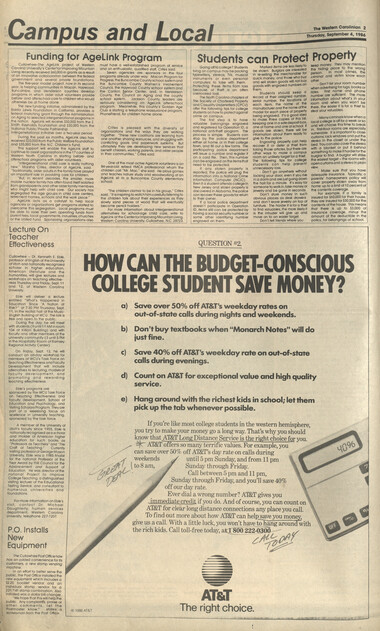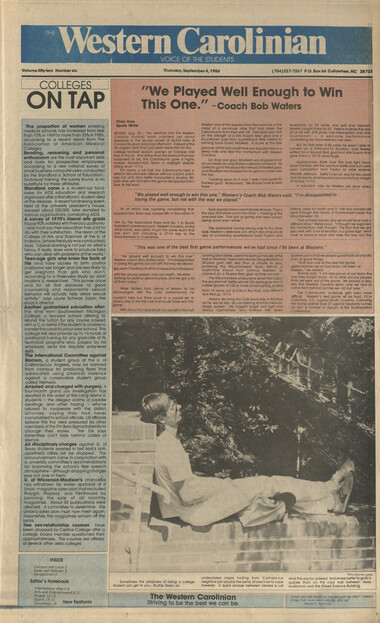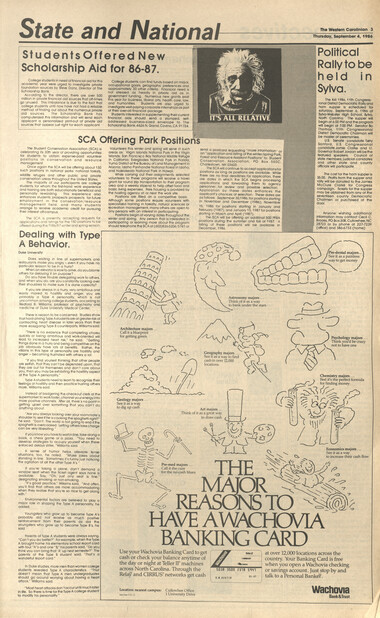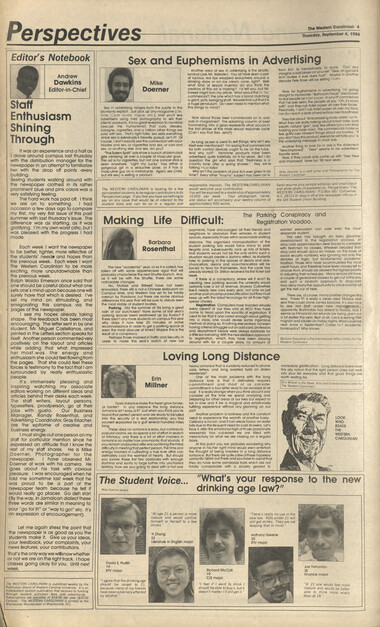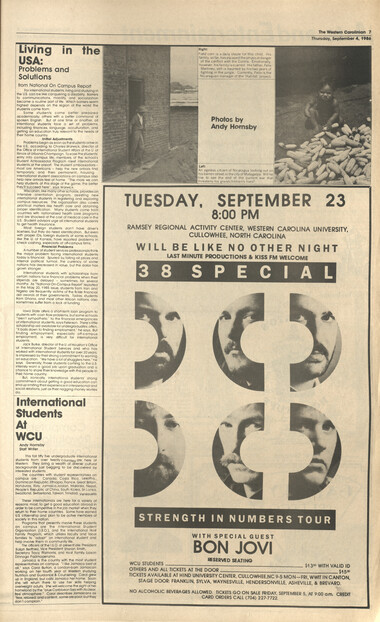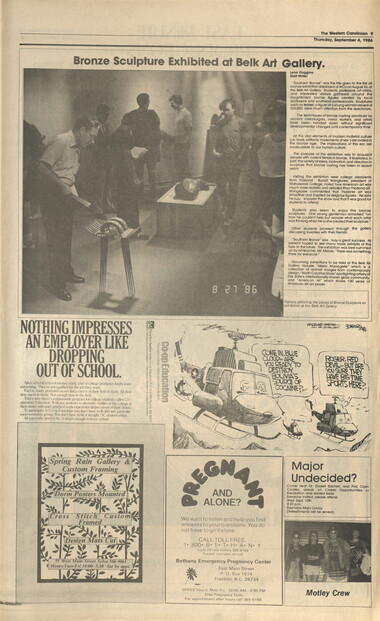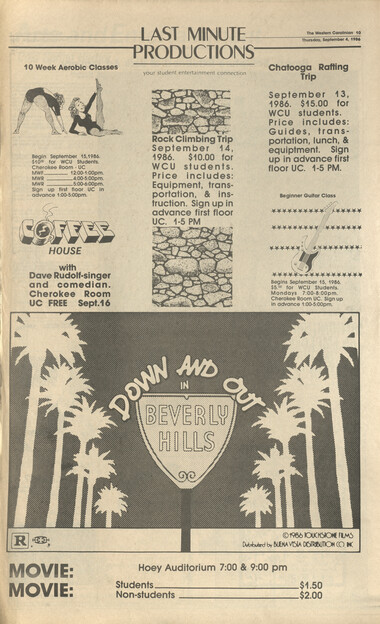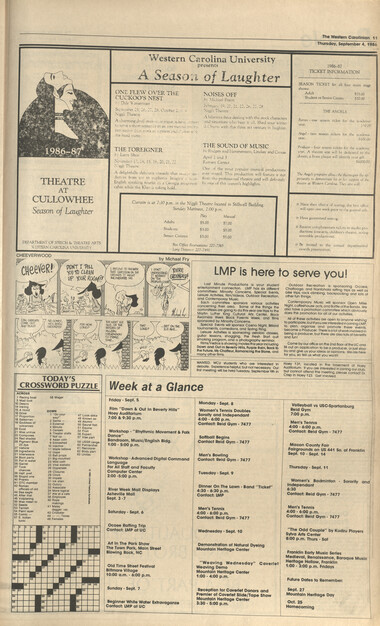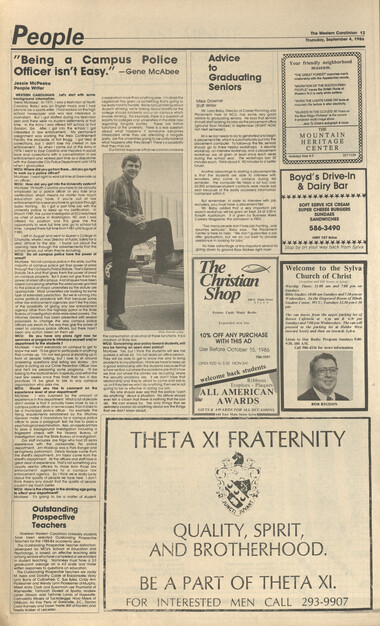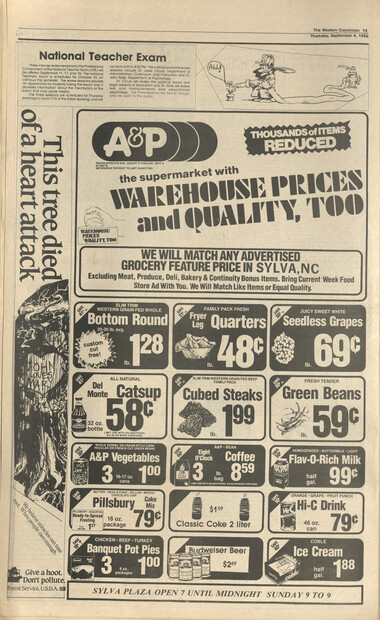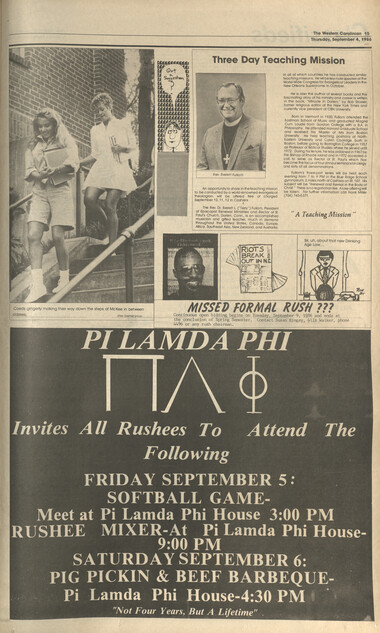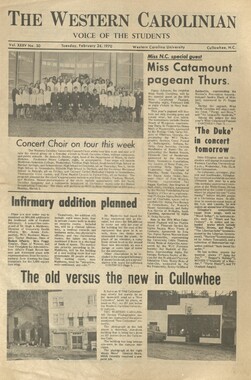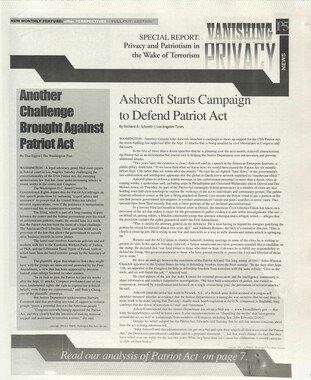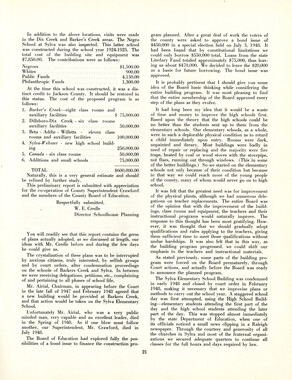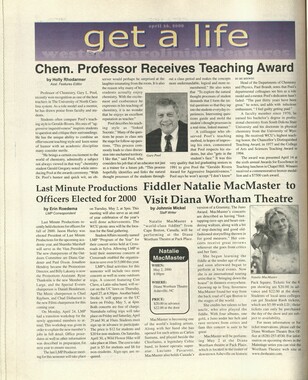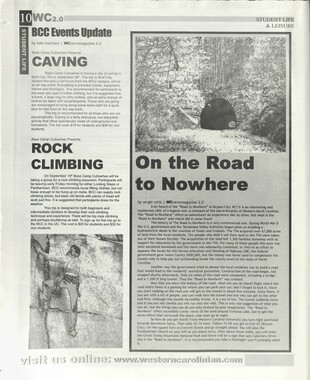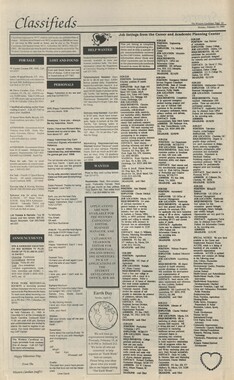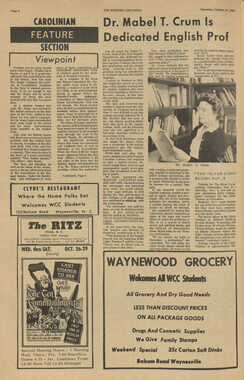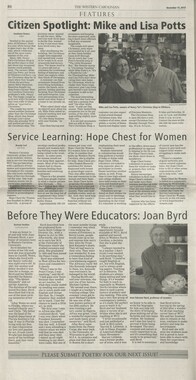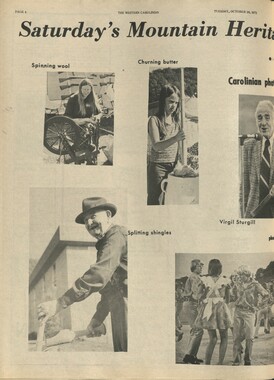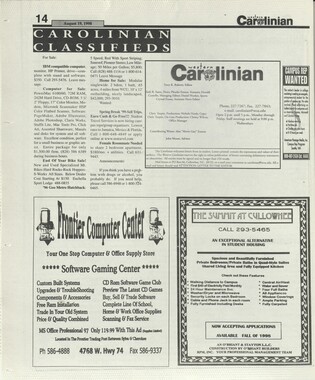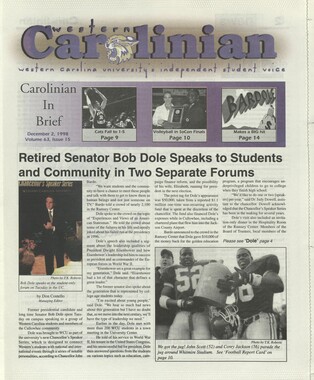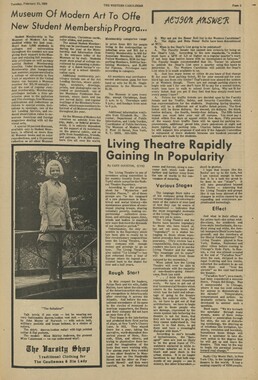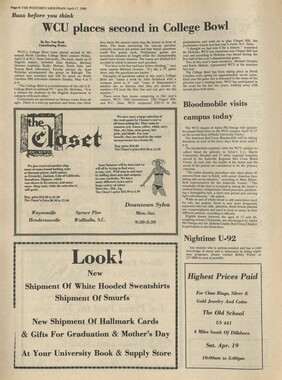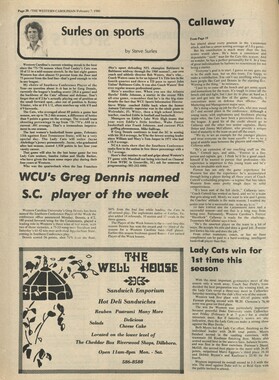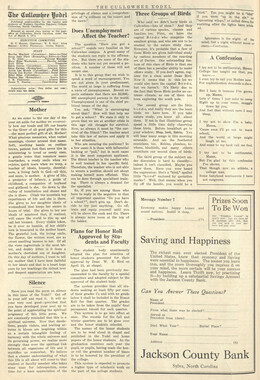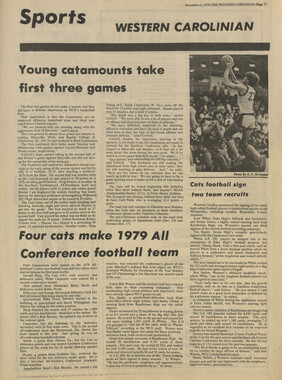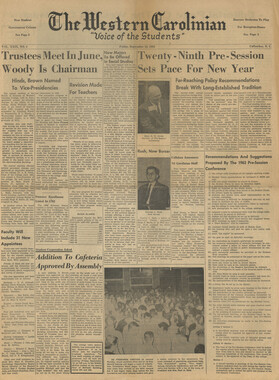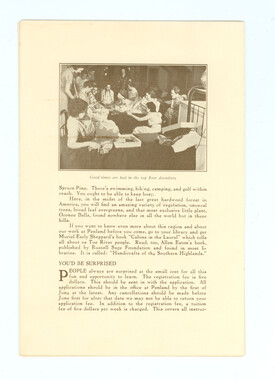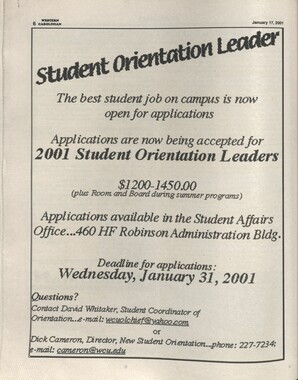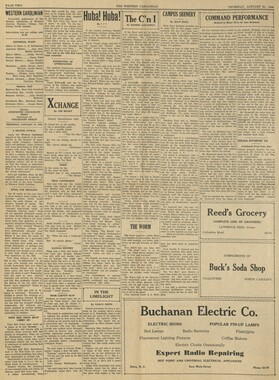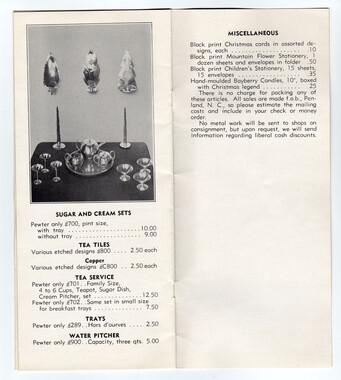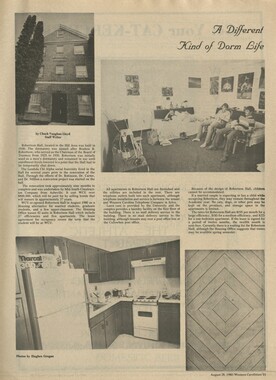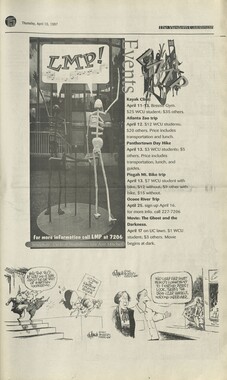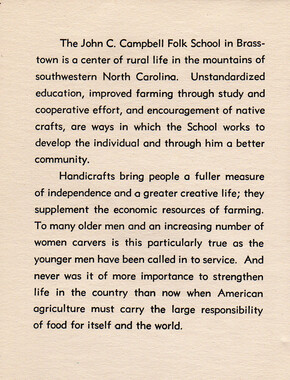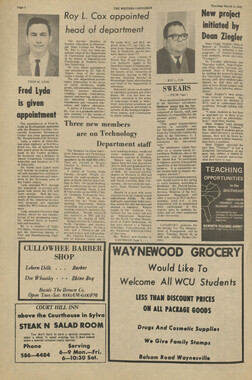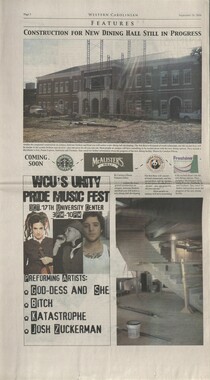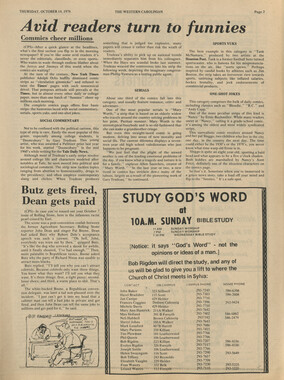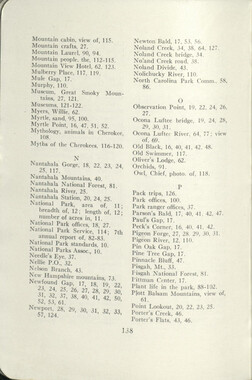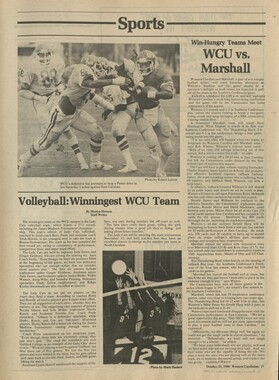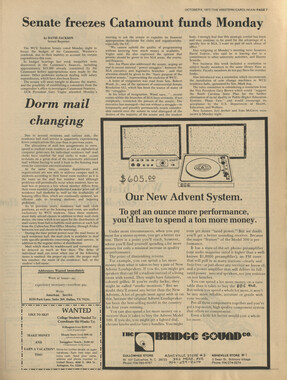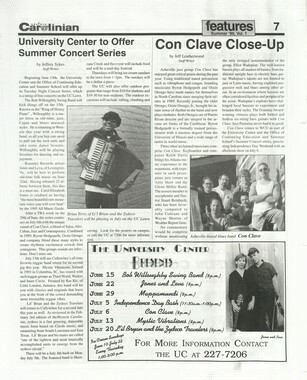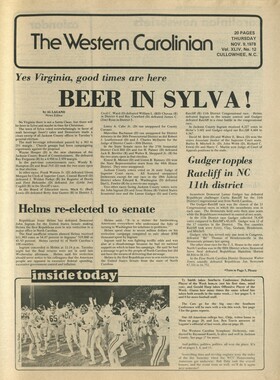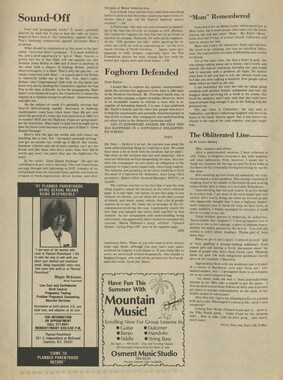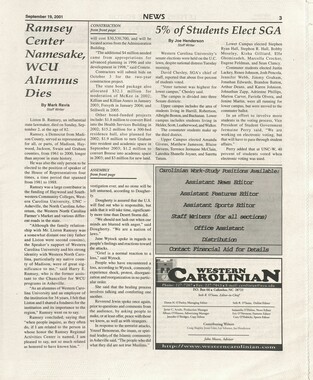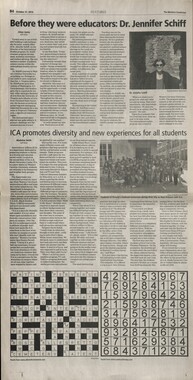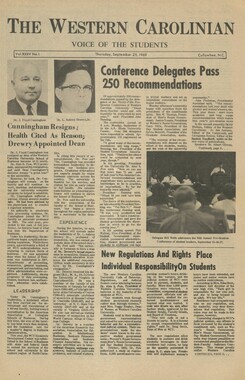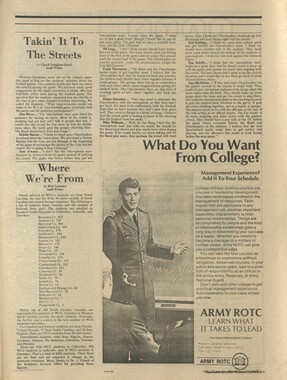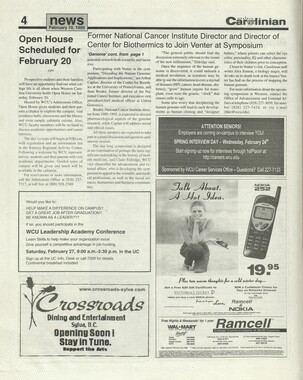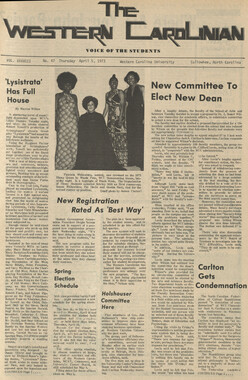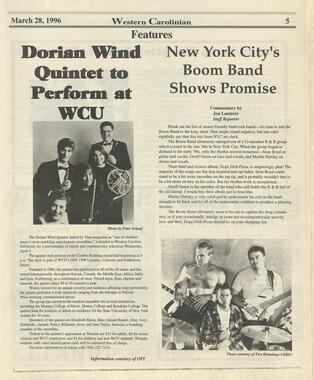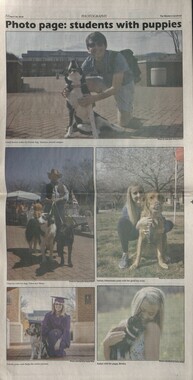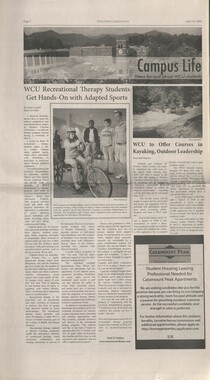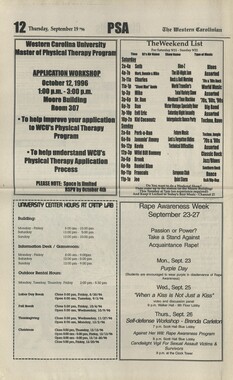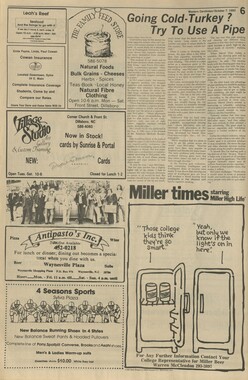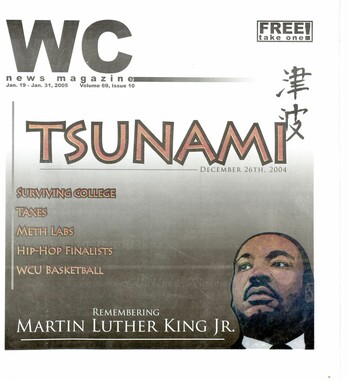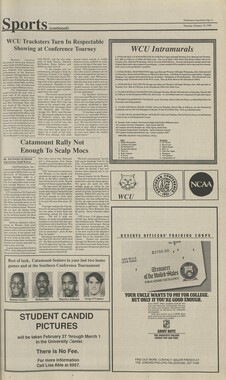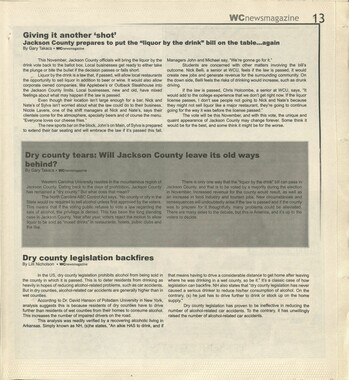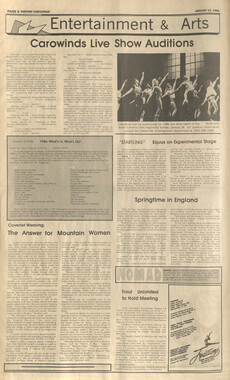Western Carolina University (20)
View all
- Canton Champion Fibre Company (2308)
- Cherokee Traditions (291)
- Civil War in Southern Appalachia (165)
- Craft Revival (1942)
- Great Smoky Mountains - A Park for America (2946)
- Highlights from Western Carolina University (430)
- Horace Kephart (941)
- Journeys Through Jackson (159)
- LGBTQIA+ Archive of Jackson County (85)
- Oral Histories of Western North Carolina (314)
- Picturing Appalachia (6873)
- Stories of Mountain Folk (413)
- Travel Western North Carolina (160)
- Western Carolina University Fine Art Museum Vitreograph Collection (129)
- Western Carolina University Herbarium (92)
- Western Carolina University: Making Memories (738)
- Western Carolina University Publications (2488)
- Western Carolina University Restricted Electronic Theses and Dissertations (146)
- Western North Carolina Regional Maps (71)
- World War II in Southern Appalachia (131)
University of North Carolina Asheville (6)
View all
- Western Carolina College (199)
- Western Carolina Teachers College (239)
- Western Carolina University (1973)
- Allanstand Cottage Industries (0)
- Appalachian National Park Association (0)
- Bennett, Kelly, 1890-1974 (0)
- Berry, Walter (0)
- Brasstown Carvers (0)
- Cain, Doreyl Ammons (0)
- Carver, George Washington, 1864?-1943 (0)
- Cathey, Joseph, 1803-1874 (0)
- Champion Fibre Company (0)
- Champion Paper and Fibre Company (0)
- Cherokee Indian Fair Association (0)
- Cherokee Language Program (0)
- Crittenden, Lorraine (0)
- Crowe, Amanda (0)
- Edmonston, Thomas Benton, 1842-1907 (0)
- Ensley, A. L. (Abraham Lincoln), 1865-1948 (0)
- Fromer, Irving Rhodes, 1913-1994 (0)
- George Butz (BFS 1907) (0)
- Goodrich, Frances Louisa (0)
- Grant, George Alexander, 1891-1964 (0)
- Heard, Marian Gladys (0)
- Kephart, Calvin, 1883-1969 (0)
- Kephart, Horace, 1862-1931 (0)
- Kephart, Laura, 1862-1954 (0)
- Laney, Gideon Thomas, 1889-1976 (0)
- Masa, George, 1881-1933 (0)
- McElhinney, William Julian, 1896-1953 (0)
- Niggli, Josephina, 1910-1983 (0)
- North Carolina Park Commission (0)
- Osborne, Kezia Stradley (0)
- Owens, Samuel Robert, 1918-1995 (0)
- Penland Weavers and Potters (0)
- Rhodes, Judy (0)
- Roberts, Vivienne (0)
- Roth, Albert, 1890-1974 (0)
- Schenck, Carl Alwin, 1868-1955 (0)
- Sherrill's Photography Studio (0)
- Smith, Edward Clark (0)
- Southern Highland Handicraft Guild (0)
- Southern Highlanders, Inc. (0)
- Stalcup, Jesse Bryson (0)
- Stearns, I. K. (0)
- Thompson, James Edward, 1880-1976 (0)
- United States. Indian Arts and Crafts Board (0)
- USFS (0)
- Vance, Zebulon Baird, 1830-1894 (0)
- Weaver, Zebulon, 1872-1948 (0)
- Western Carolina University. Mountain Heritage Center (0)
- Whitman, Walt, 1819-1892 (0)
- Wilburn, Hiram Coleman, 1880-1967 (0)
- Williams, Isadora (0)
- 1920s (57)
- 1930s (69)
- 1940s (114)
- 1950s (66)
- 1960s (314)
- 1970s (599)
- 1980s (406)
- 1990s (379)
- 2000s (282)
- 2010s (175)
- 1600s (0)
- 1700s (0)
- 1800s (0)
- 1810s (0)
- 1820s (0)
- 1830s (0)
- 1840s (0)
- 1850s (0)
- 1860s (0)
- 1870s (0)
- 1880s (0)
- 1890s (0)
- 1900s (0)
- 1910s (0)
- 2020s (0)
- Jackson County (N.C.) (2463)
- Appalachian Region, Southern (0)
- Asheville (N.C.) (0)
- Avery County (N.C.) (0)
- Blount County (Tenn.) (0)
- Buncombe County (N.C.) (0)
- Cherokee County (N.C.) (0)
- Clay County (N.C.) (0)
- Graham County (N.C.) (0)
- Great Smoky Mountains National Park (N.C. and Tenn.) (0)
- Haywood County (N.C.) (0)
- Henderson County (N.C.) (0)
- Knox County (Tenn.) (0)
- Knoxville (Tenn.) (0)
- Lake Santeetlah (N.C.) (0)
- Macon County (N.C.) (0)
- Madison County (N.C.) (0)
- McDowell County (N.C.) (0)
- Mitchell County (N.C.) (0)
- Polk County (N.C.) (0)
- Qualla Boundary (0)
- Rutherford County (N.C.) (0)
- Swain County (N.C.) (0)
- Transylvania County (N.C.) (0)
- Watauga County (N.C.) (0)
- Waynesville (N.C.) (0)
- Yancey County (N.C.) (0)
- Newsletters (510)
- Publications (documents) (1978)
- Aerial Photographs (0)
- Aerial Views (0)
- Albums (books) (0)
- Articles (0)
- Artifacts (object Genre) (0)
- Bibliographies (0)
- Biography (general Genre) (0)
- Cards (information Artifacts) (0)
- Clippings (information Artifacts) (0)
- Copybooks (instructional Materials) (0)
- Crafts (art Genres) (0)
- Depictions (visual Works) (0)
- Design Drawings (0)
- Drawings (visual Works) (0)
- Envelopes (0)
- Exhibitions (events) (0)
- Facsimiles (reproductions) (0)
- Fiction (general Genre) (0)
- Financial Records (0)
- Fliers (printed Matter) (0)
- Glass Plate Negatives (0)
- Guidebooks (0)
- Internegatives (0)
- Interviews (0)
- Land Surveys (0)
- Letters (correspondence) (0)
- Manuscripts (documents) (0)
- Maps (documents) (0)
- Memorandums (0)
- Minutes (administrative Records) (0)
- Negatives (photographs) (0)
- Newspapers (0)
- Notebooks (0)
- Occupation Currency (0)
- Paintings (visual Works) (0)
- Pen And Ink Drawings (0)
- Periodicals (0)
- Personal Narratives (0)
- Photographs (0)
- Plans (maps) (0)
- Poetry (0)
- Portraits (0)
- Postcards (0)
- Programs (documents) (0)
- Questionnaires (0)
- Relief Prints (0)
- Sayings (literary Genre) (0)
- Scrapbooks (0)
- Sheet Music (0)
- Slides (photographs) (0)
- Songs (musical Compositions) (0)
- Sound Recordings (0)
- Specimens (0)
- Speeches (documents) (0)
- Text Messages (0)
- Tintypes (photographs) (0)
- Transcripts (0)
- Video Recordings (physical Artifacts) (0)
- The Reporter, Western Carolina University (510)
- WCU Students Newspapers Collection (1920)
- A.L. Ensley Collection (0)
- Appalachian Industrial School Records (0)
- Appalachian National Park Association Records (0)
- Axley-Meroney Collection (0)
- Bayard Wootten Photograph Collection (0)
- Bethel Rural Community Organization Collection (0)
- Blumer Collection (0)
- C.W. Slagle Collection (0)
- Canton Area Historical Museum (0)
- Carlos C. Campbell Collection (0)
- Cataloochee History Project (0)
- Cherokee Studies Collection (0)
- Daisy Dame Photograph Album (0)
- Daniel Boone VI Collection (0)
- Doris Ulmann Photograph Collection (0)
- Elizabeth H. Lasley Collection (0)
- Elizabeth Woolworth Szold Fleharty Collection (0)
- Frank Fry Collection (0)
- George Masa Collection (0)
- Gideon Laney Collection (0)
- Hazel Scarborough Collection (0)
- Hiram C. Wilburn Papers (0)
- Historic Photographs Collection (0)
- Horace Kephart Collection (0)
- Humbard Collection (0)
- Hunter and Weaver Families Collection (0)
- I. D. Blumenthal Collection (0)
- Isadora Williams Collection (0)
- Jesse Bryson Stalcup Collection (0)
- Jim Thompson Collection (0)
- John B. Battle Collection (0)
- John C. Campbell Folk School Records (0)
- John Parris Collection (0)
- Judaculla Rock project (0)
- Kelly Bennett Collection (0)
- Love Family Papers (0)
- Major Wiley Parris Civil War Letters (0)
- Map Collection (0)
- McFee-Misemer Civil War Letters (0)
- Mountain Heritage Center Collection (0)
- Norburn - Robertson - Thomson Families Collection (0)
- Pauline Hood Collection (0)
- Pre-Guild Collection (0)
- Qualla Arts and Crafts Mutual Collection (0)
- R.A. Romanes Collection (0)
- Rosser H. Taylor Collection (0)
- Samuel Robert Owens Collection (0)
- Sara Madison Collection (0)
- Sherrill Studio Photo Collection (0)
- Smoky Mountains Hiking Club Collection (0)
- Stories of Mountain Folk - Radio Programs (0)
- Venoy and Elizabeth Reed Collection (0)
- WCU Gender and Sexuality Oral History Project (0)
- WCU Mountain Heritage Center Oral Histories (0)
- WCU Oral History Collection - Mountain People, Mountain Lives (0)
- Western North Carolina Tomorrow Black Oral History Project (0)
- William Williams Stringfield Collection (0)
- Zebulon Weaver Collection (0)
- College student newspapers and periodicals (1948)
- African Americans (0)
- Appalachian Trail (0)
- Artisans (0)
- Cherokee art (0)
- Cherokee artists -- North Carolina (0)
- Cherokee language (0)
- Cherokee pottery (0)
- Cherokee women (0)
- Church buildings (0)
- Civilian Conservation Corps (U.S.) (0)
- Dams (0)
- Dance (0)
- Education (0)
- Floods (0)
- Folk music (0)
- Forced removal, 1813-1903 (0)
- Forest conservation (0)
- Forests and forestry (0)
- Gender nonconformity (0)
- Great Smoky Mountains National Park (N.C. and Tenn.) (0)
- Hunting (0)
- Landscape photography (0)
- Logging (0)
- Maps (0)
- Mines and mineral resources (0)
- North Carolina -- Maps (0)
- Paper industry (0)
- Postcards (0)
- Pottery (0)
- Railroad trains (0)
- Rural electrification -- North Carolina, Western (0)
- School integration -- Southern States (0)
- Segregation -- North Carolina, Western (0)
- Slavery (0)
- Sports (0)
- Storytelling (0)
- Waterfalls -- Great Smoky Mountains (N.C. and Tenn.) (0)
- Weaving -- Appalachian Region, Southern (0)
- Wood-carving -- Appalachian Region, Southern (0)
- World War, 1939-1945 (0)
- Text (2488)
- MovingImage (0)
- Sound (0)
- StillImage (0)
Western Carolinian Volume 52 Number 06
Item
Item’s are ‘child’ level descriptions to ‘parent’ objects, (e.g. one page of a whole book).
-
-
Campus and Local The Western Carolinian 2 Thursday, September 4, 1986 Funding for AgeLink Program Cullowhee-The AgeLink project of Western Carolina University's Center for Improving Mountain Living recently received $60,000 in grants as a result of an innovative collaboration between the federal government and several private foundations. The five-year model project, now in its second year, is helping communities in Macon, Haywood, Buncombe, and Henderson counties develop programs in which older adult volunteers provide before- and afterschool care to children who would otherwise be at home alone. The new funding initiative, administered by the Elvirita Lewis Foundation in California, provides a federal matching grant through the Administration on Aging to selected intergenerational programs in the nation. AgeLink will receive $30,000 from the Z. Smith Reynolds Foundation and $30,000 from the National Public/Private Partnership Intergenetational Initiative over a two-year period. During the past six months, AgeLink also has received $20,000 from the Public Welfare Foundation and $35,000 from the N.C. Children's Fund. This support will enable the AgeLink staff to continue to assist organizations in the 17 counties of Western North Carolina in starting before- and afterschool programs with older volunteers. "Intergenerational child care is really nothing new," Marsha Crites, director of AgeLink, said. "Traditionally, older adults in the family have played an important role in providing care for children. "But, in recent decades, the smaller, more mobile nuclear family has often found itself isolated from grandparents and other older family members who might help with child care. Our society has segregated the age groups in child care centers, retirement homes, schools and the work place." AgeLink acts as a catalyst to help local agencies or organizations get programs started to overcome this segregation. Local programs must be able to raise their own operating funds from parent fees, local governments, industries, churches or the United Fund. Sponsoring organizations also must have a well-established program of service and an enthusiastic, qualified staff, Crites said. Seven agencies are sponsors in the four programs already under way: Macon Program for Progress, the Buncombe County school system and the Buncombe County Women's Involvement Council, the Haywood County school system and the Canton Senior Center, and, in Henderson County, the Council on Aging and the county school system. Jackson County leaders are seriously considering an AgeLink afterschool program. Meanwhile, this county's Golden Age Club is starting a telephone reassurance program, PhoneFriend, for children home alone. Crites is pleased with the diversity of organizations and the ways they are working together. "These new coalitions are learning from one another, sharing resources, and struggling with conflicting goals and paperwork systems. But ultimately they are developing new services that benefit children, working parents, and older people in their communities," Crites said. One of the most active AgeLink volunteers is an 84-year-old retired YMCA professional whom the children call "Mr. Mac," she said. He plays games and teaches nature study and woodworking at an AgeLink sit in a Buncombe County elementary school. "The children clamor to be in his group," Crites said. "It is inspiring to watch him carefully listening to the children talk about their experiences as they slowly sand pieces of wood that will eventually become pencil holders." For more information about intergenerational alternatives for school-age child care, write to AgeLink at the Centerfor Improving Mountain Living, Western Carolina University, Cullowhee, N.C. 28723. Students can Protect Property Going off to college? Students living on campus may be packing typewriters, stereos, TVs, musical instruments or even personal computers to take with them. Protecting these items from loss because of theft is an often overlooked task. The North Carolina chapters of The Society of Chartered Property and Casualty Underwriters (CPCU) offer the following tips for college students on how to protect against crime on campus. The first step is to have valuable belongings engraved and registered for Operation ID, a national anti-theft program. The process is simple. Students can stop by the police department either at home or in their college town, and fill out a few forms. The participating police department will issue a number and register it on a card file. Then, this number can be engraved on the items that need to be protected. If any stolen property is reported, the police will plug the information into a National Crime Information Computer (NCIC). Even if a student attends college in New Jersey and stolen property is discovered in Alabama, the police can recover these goods for return to their owner. If a local police department doesn't participate in Operation ID, items still can be protected by having a social security number or some other identifying number engraved on them. Marked items are less likelyto be stolen. Burglars are interested in re-selling the merchandise for quick money, and those who buy and sell stolen goods will not buy goods with engraved numbers on them. Students should keep a record of their assigned number, serial number, the locations of each item, the name of the manufacturer and the name of the model for each piece of property being engraved. It's a good idea to make three copies of this list, keeping one in a safe deposit box, one at home and one at school. If goods are stolen, there will be information about them ready to give to the police. Engraving property can help recover it or deter a thief from taking those articles, but there are other ways to make a campus room an unlikely target for a thief. The following tips for college students can help prevent unnecessary loss. - Don't go anywhere without locking your door, even if you live in a dorm and are just going down the hall for a minute. It's easy for someone to walk in, take money or jewelry and be gone in seconds. Don't store money in such obvious places as desk drawers and don't leave jewelry on top of furniture. The harder it is for a thief to find valuables, the more likely it is the intruder will give up and move on to an easier target. Don't tell friends where you keep money. They may mention the hiding place to the wrong person. In most crimes, the criminal and victim know each other. . Don't list your room number when advertising for rugs, books or rides. First name and phone number are sufficient. The more information about what's in your room and when you won't be there, the easier it is for a thief to steal your valuables. -Manycriminalsknowwhena local college is off for a week or so and will choose this time to break in. First-floor rooms are especially vulnerable. It is important to close curtains, lock windows and put the stereo in the closet or under the bed. You can also cover the stereo with a blanket or put it behind something to make it harderforthe burglar to find. A burglar will strike the easiest target - the rooms with open curtains and a stereo in plain view. - Make sure that you have adequate insurance. Typically, a parents' homeowners policy will cover property stolen away from home up to a limit of 10 percent of the contents coverage. For example, if a family is insured for $60,000 for their house, they are insured for $30,000 for the contents of the house. This means that there is up to $3,000 of insurance coverage, minus the amount of the deductible in the policy, for belongings at school. Lecture On Teacher Effectiveness Cullowhee -- Dr. Kenneth E. Eble, professor of English at the University of Utah and nationally recognized scholar in higher education, American literature and the humanities, will give lectures and workshops on teaching effectiveness Thursday and Friday, Sept. 11 and 12, at Western Carolina University. Eble will deliver a lecture entitled "What's Happened in Education Since 'A Nation at Risk?'" at 7:30 PM Thursday, Sept. 11, In the recital hall of the Music- English Building at WCU. The talk is free and open to the public. During the day, he will meet with students (9 until 11 AM in room 104 of Killian Building) and with faculty and other members of the university community (3 until 5 PM in the Hospitality Room of Ramsey Regional Activity Center). On Friday, Sept. 12, he will conduct an all-day workshop for members of WCU's Task Force on Teaching Effectiveness and Faculty Development that will include alternatives to lecturing, models of faculty development, and promoting and rewarding teaching effectiveness. Eble's programs are sponsored by the WCU Task Force on Teaching Effectiveness and Faculty development, School of Education and Psychology, and Visiting Scholars Program. They are part of a weeklong focus on ecellence in university teaching, sponsored by the task force. A member of the University of Utah's faculty since 1955, Eble is nationally recognized asa scholar and molder of American higher education for such books as "Professors as Teachers" and "The Craft of Teaching." Currently visiting professor at George Mason University, Eble was a 1985 finalist for the national Professor of the Year Award by the Council for the Advancement and Support of Education. He was director of the national Project to Improve College Teaching, a distinguished visiting lecturer at the Educational Testing Service, and consultant to numerous universities and foundations. For more information on Eble's visit, contact Dr. Michael Doughterty, human services department, Western Carolina University, telephone 227-7207. P.O. Installs New Equipment The Cullowhee Post Office now has an added convenience for its customers, a new stamp vending machine. In an effort to better serve the public, the Post Office installed the new equipment which includes a $2.20 booklet vendor and an individual stamp vendor for a 22C/14C stamp combination. Also installed was a dollar bill changer. "We hope that this will help the public. Any complaints, praise or other comments, let the Postmaster know." states a spokesman from the Post Office QUESTION #2. HOW CAN THE BUDGET-CONSCIOUS COLLEGE STUDENT SAVE MONEY? a) Save over 50% off AT&T's weekday rates on out-of-state calls during nights and weekends. b) Don't buy textbooks when "Monarch Notes" will do just fine. c) Save 40% off AT&T's weekday rate on out-of-stare calls during evenings. d) Count on AT&T for exceptional value and high quality service. e) Hang around with the richest kids in school; let them pick up the tab whenever possible. If you're like most college students in the western hemisphere, you try to make your money go a long way. That's why you should know that AT&T Long Distance Service is the right choice for you ■sfC' AT&T oilers so many terrific values. For example, you can save over 50% off AT&T's day rate on calls during weekends ^/ until 5 pm Sunday, and from 11 pm to 8 am, j^jjr Sunday through Friday. Call between 5 pm and 11 pm, Sunday through Friday, and you'll save 40% off our day rate. Ever dial a wrong number? AT&T gives you imjroeg^M.credjt if you do. And of course, you can count on \ AT&T for clear long distance connections any place you call. To find out more about how AT&T can helpj^vej/pujnone^ give us a call. With a little luck, you won't have toTh^Hgarounawith the rich kids. Call toll-free today, atJ^OO 222^308 © 1986 AT&T AT&T The right choice. — . i ——J
Object
Object’s are ‘parent’ level descriptions to ‘children’ items, (e.g. a book with pages).
-
The Western Carolinian is Western Carolina University's student-run newspaper. The paper was published as the Cullowhee Yodel from 1924 to 1931 before changing its name to The Western Carolinian in 1933.
-
